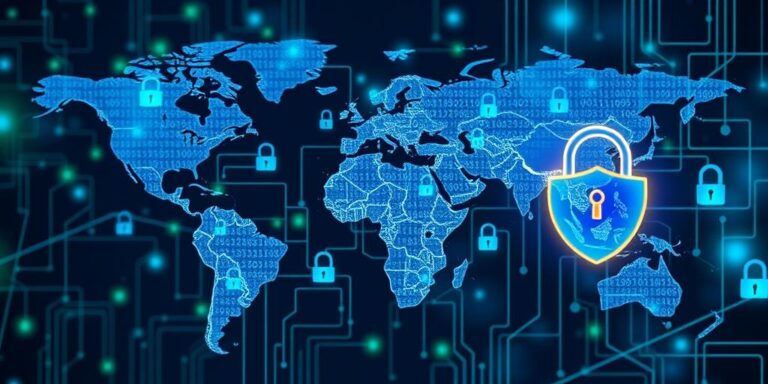Navigating Global Data Privacy Regulations (GDPR, CCPA & Beyond – 2025 Update)
In today’s interconnected world, data flows across borders at lightning speed. This necessitates a robust understanding of global data privacy regulations for any organization handling personal information. As we move into 2025, the landscape of data protection continues to evolve, with the General Data Protection Regulation (GDPR), the California Consumer Privacy Act (CCPA), and other regulations shaping how businesses operate.
This post provides an informative overview of key data privacy regulations and their implications for your organization.
Understanding GDPR
The General Data Protection Regulation (GDPR) is a landmark privacy law enacted by the European Union (EU) in 2018. It applies to organizations that process the personal data of individuals within the EU, regardless of the organization’s location. Key principles of GDPR include:
- Lawfulness, Fairness, and Transparency: Data processing must be lawful, fair, and transparent to the data subject.
- Purpose Limitation: Data should only be collected for specified, explicit, and legitimate purposes.
- Data Minimization: Only collect data that is adequate, relevant, and limited to what is necessary.
- Accuracy: Data must be accurate and kept up to date.
- Storage Limitation: Data should be kept for no longer than necessary.
- Integrity and Confidentiality: Data must be processed securely.
CCPA and CPRA
The California Consumer Privacy Act (CCPA), which came into effect in 2020, grants California residents several rights regarding their personal information, including the right to know, the right to delete, and the right to opt-out of the sale of their data. The California Privacy Rights Act (CPRA), which amended the CCPA in 2023, further strengthens these rights and establishes the California Privacy Protection Agency (CPPA) to enforce the law.
Other Key Data Privacy Regulations
While GDPR and CCPA are prominent, numerous other data privacy regulations exist worldwide, including:
- PIPEDA (Canada): The Personal Information Protection and Electronic Documents Act governs the collection, use, and disclosure of personal information in the private sector.
- LGPD (Brazil): The Lei Geral de Proteção de Dados establishes a comprehensive data protection framework similar to GDPR.
- PDPA (Singapore): The Personal Data Protection Act governs the collection, use, disclosure, and care of personal data.
Implications for Organizations
Complying with global data privacy regulations can be complex, but it is essential for maintaining customer trust and avoiding hefty fines. Organizations must:
- Conduct Data Mapping: Understand what personal data you collect, where it is stored, and how it is processed.
- Implement Privacy Policies: Develop clear and transparent privacy policies that inform individuals about their rights and how their data is used.
- Obtain Consent: Obtain valid consent for data processing activities, especially when dealing with sensitive personal information.
- Ensure Data Security: Implement appropriate technical and organizational measures to protect personal data from unauthorized access, disclosure, or loss.
- Provide Data Subject Rights: Establish processes for individuals to exercise their rights, such as accessing, correcting, or deleting their data.
- Train Employees: Educate employees about data privacy regulations and their responsibilities in protecting personal data.
Looking Ahead to 2025
As we approach 2025, several trends are shaping the future of data privacy:
- Increased Enforcement: Data protection authorities are becoming more active in enforcing data privacy regulations, imposing significant fines for non-compliance.
- Cross-Border Data Transfers: The legal framework for cross-border data transfers remains a complex and evolving area, particularly in light of Schrems III and ongoing negotiations between the EU and other countries.
- AI and Data Privacy: The use of artificial intelligence (AI) raises new data privacy challenges, requiring organizations to ensure that AI systems comply with data protection principles.
- Focus on Data Ethics: There is growing emphasis on data ethics, encouraging organizations to consider the broader societal impact of their data practices.
Conclusion
Navigating the complex landscape of global data privacy regulations requires a proactive and comprehensive approach. By understanding the key principles of GDPR, CCPA, and other regulations, organizations can build trust with customers, mitigate legal risks, and demonstrate a commitment to responsible data practices. As we move into 2025, staying informed about the latest developments and trends in data privacy is essential for maintaining compliance and fostering a culture of data protection.




